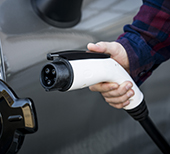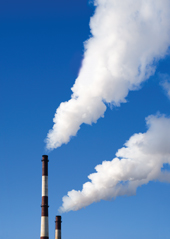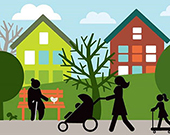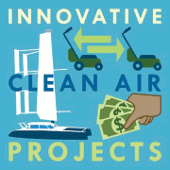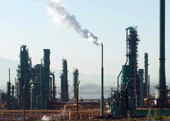|
|

|
|
|
|
February 2019 l Volume 2019-1
|
|
|
|
|
|
|
In this issue, you’ll find articles about the new Clean Cars for All grant program, the Air District Board’s recent adoption of the Expedited BARCT Implementation Schedule and refinery rule amendments, and an upcoming Richmond Community Summit meeting to discuss development of the Richmond Community Air Monitoring plan. Other articles cover a groundbreaking hydrogen fuel cell ferry project and a recent settlement agreement with Chevron. A summary of current grant opportunities is also included.
|
|
|
|
|
|
|
|
|
|
|
|
|
|
|
| | |
Air District Rolls Out Clean Cars for All Grant Program
|
|
In order to make environmentally friendly vehicles available to those who live in neighborhoods suffering from higher levels of air pollution, the Air District will open the Clean Cars for All program in March to Bay Area residents. Clean Cars for All will provide financial incentives for low-income members of communities disproportionately burdened by air pollution to retire their older vehicle and replace it with a hybrid electric, plug-in hybrid electric, or battery electric vehicle - or get a Clipper Card for public transit.
In order to qualify, Bay Area residents must:
- Complete an application to verify their eligibility for the program
- Be a first-time applicant to a vehicle replacement grant program
- Live in a designated, eligible community in the Bay Area and household income must fall under a specified income limit
- Have a vehicle that is operational, weighs less than 10,000 pounds, is model year 1996 or earlier, and is registered under the applicant’s name in California
Once a resident’s application is approved, he or she must bring the vehicle to an authorized dismantler for a pre-inspection to verify vehicle requirements. If the vehicle passes pre-inspection and they receive a notice to proceed, residents can go to an authorized dealership to purchase or lease a new or used hybrid, plug-in, or electric vehicle, or they can use the funding to purchase a Clipper Card. After they’ve replaced their vehicle, it must be scrapped by the dismantler.
A combination of household income and choice of replacement vehicle will determine the amount of money residents receive from this program. The average replacement vehicle costs $22,000, and the average Clean Cars for All incentive is $7,500. The average additional loan financing available through the program for purchasing a replacement vehicle is $14,500.
Additionally, up to $2,000 in funding is available for a Level 2 charger with purchase of a Battery Electric Vehicle. This additional funding can cover equipment and installation.
Residents must choose one of the following types of vehicles to replace their scrapped vehicle:
- Hybrid Electric Vehicles combine an electric motor with a gasoline engine. These vehicles cannot be "plugged-in" to be "recharged.” The gasoline-powered motor also acts as a generator to recharge batteries on hybrids.
- Plug-In Hybrid Electric Vehicles combine an electric motor with a gasoline engine. Plug-In Hybrid batteries are recharged by the gasoline-powered motor during braking and by plugging into an outlet or charging station.
- Battery Electric Vehicles operate solely on their electric motor. Battery Electric Vehicle batteries recharge by plugging into an outlet or charging station.
Funding is available for installing several types of electric vehicle chargers as well.
For more information about the Clean Cars for All program, visit the Air District’s Clean Cars for All web site.
Clean Cars for All is supported by the California Climate Investments program, a statewide initiative that addresses climate change by reducing greenhouse gases and improving air quality.
Clean Cars for All has partnered with GRID Alternatives to assist applicants. GRID Alternatives is the only partner authorized to provide assistance for Clean Cars for All.
|
|
|
|
|
|
|
|
|
|
|
|
|
|
| | |
Air District Board Adopts BARCT Implementation Schedule and Amendments to Refinery Rules
|
|
At its December 19 board meeting, the Air District’s Board of Directors voted to adopt the Expedited Best Available Retrofit Control Technology Implementation Schedule required by Assembly Bill 617 for industrial cap-and-trade facilities, as well as a series of rule amendments affecting operations at oil refineries. AB 617 requires air districts to review the emissions control technology installed on pollution sources located at industrial facilities subject to the cap-and-trade program. To address facilities that do not have Best Available Retrofit Control Technology, or BARCT, in place, AB 617 required each air district to adopt an Expedited BARCT Implementation Schedule before the end of 2018.
The Air District identified 19 of these industrial cap-and-trade facilities in the Bay Area, encompassing over 1,800 sources. For the Expedited BARCT Implementation Schedule, the Air District identified sources for which BARCT is not in place and developed a list of six potential rule development projects to consider for implementation that will address emissions of particulate matter, oxides of nitrogen, reactive organic compounds, and sulfur dioxide.
At the December 19 meeting, the Air District’s board also adopted amendments to three rules affecting the region’s petroleum refineries. These amendments clarify and modify exemptions, definitions and requirements for specific sections of all three rules.
The amendments to Regulation 6, Rule 5: Particulate Matter from Refinery Fluid Catalytic Cracking Units are simply clarifications of rule provisions and original intent.
The amendments to Regulation 11, Rule 10: Hexavalent Chromium Emissions from All Cooling Towers and Total Hydrocarbon Emissions from Petroleum Refinery Cooling Towers reduce monitoring of cooling towers for hydrocarbon leaks from daily to weekly, with provisions to extend monitoring periods after demonstrating no leaks for an extended time. Costs for daily monitoring were found to be excessive and not cost-effective relative to the potential hydrocarbon emission reductions.
Amendments to Regulation 12, Rule 15: Petroleum Refining Emissions Tracking modify and clarify the rule's reporting requirements, review and approval processes, and provisions for handling and securing confidential information.
Pursuant to the California Environmental Quality Act, the Air District’s Board of Directors also certified the Environmental Impact Reports for the Expedited BARCT Implementation Schedule and the proposed amendments to all three regulations.
Information about the rule development process for the Expedited BARCT Implementation Schedule and amendments to refinery rules is available in the Rules Under Development section of the Air District’s website.
|
|
|
|
|
|
|
|
|
|
|
|
|
| | |
Air District Holds Richmond Community Summit on February 16
|
|
Community members from the Richmond-San Pablo area are partnering with the Air District to develop a Community Air Monitoring Plan. To help inform this community-driven effort, residents and interested stakeholders are invited to attend a community summit on Saturday, February 16. The summit will take place at the Richmond City Recreation Complex located at 3230 Macdonald Ave. in Richmond, California.
Interested parties can RSVP online for this event. RSVP's are optional but will help with event planning. Food will be provided. Childcare for children three years and up will also be available. Registration and networking will begin at 10:00 AM, opening remarks will begin at 10:30 AM, and the event is scheduled to conclude at 1:30 PM.
The Air District’s Community Health Protection Program, created as the result of Assembly Bill 617, is expanding existing efforts to reduce air pollution in communities throughout the Bay Area.
One key component of this program is to initiate community air monitoring plans in neighborhoods most disproportionately impacted by air pollution. Data collected from these monitoring plans will inform future community-based emissions reduction plans.
The California Air Resources Board selected the Richmond-San Pablo Area as a priority community for monitoring plan development, based on a recommendation from the Air District. This plan will serve as a model for future efforts as the program grows over time.
Visit our Richmond Area Community Health Protection Program web page to learn more.
|
|
|
|
|
|
|
|
|
|
|
|
|
|
| | |
Air District Administers Hydrogen Fuel Cell Ferry Project
|
|
In November, marine power system company Golden Gate Zero Emission Marine began construction of the Water-Go-Round, a first-of-its-kind hydrogen fuel cell boat being built by Bay Ship & Yacht Company of Alameda. The 70-foot catamaran will showcase the advantages of hydrogen fuel cells for the commercial maritime industry, with construction expected to be complete by September 2019. Funding for the project comes from a $3 million grant to the Air District from the California Air Resources Board.
Funding for the CARB grant for the country’s first zero-emission passenger ferry originally stems from California Climate Investments, a statewide program that puts billions of cap-and-trade dollars to work reducing greenhouse gas emissions, strengthening the economy and improving public health and the environment — particularly in disadvantaged communities.
The Air District is administering the project, alongside other partners including Bay Ship & Yacht Co., BAE Systems, Hydrogenics, Red and White Fleet, Incat Crowther, Hexagon Composites, the Port of San Francisco, and Sandia National Laboratories.
Once the Water-Go-Round is launched, it will be operated for three months in San Francisco Bay to enable Sandia National Laboratories to independently assess performance and gather data for CARB to determine the marine suitability of the technology. Partners will also gather feedback from operators and passengers to determine the best commercial use of the vessel.
In addition, Red and White Fleet intends to use the Water-Go-Round as the first of several vessels with Golden Gate Zero Emission Marine integrations in order to meet their commitment to a build a 100 percent zero-emission fleet by 2025.
|
|
|
|
|
|
|
|
|
|
|
|
|
|
| | |
Air District Settles Case with Chevron U.S.A. Inc.
|
|
In November 2018, Chevron U.S.A. Inc. agreed to pay the Air District $225,500 to settle air quality violations at its refinery in Richmond. The settlement covered 51 notices of violation issued to the company for non-compliance with air quality regulations. The violations that led to this settlement occurred largely in 2015 and 2016 and were corrected soon after they were discovered.
The notices of violation included:
- Several violations of the federal standard limiting the amount of hydrogen sulfide that can be burned at combustion sources
- A public nuisance violation following flaring associated with an unplanned shutdown
- Violation of the opacity standard for smoke associated with flaring
- Three violations of the requirement to monitor fuel flow to furnaces to control nitrogen oxide emissions
- Failure to include certain components in the leak detection and repair program
- Nitrogen oxide levels that exceeded limits established by the Air District permit for furnace emissions
- Failure to monitor during process vessel depressurization
The Air District issues notices of violation when facilities violate a specific air quality regulation or rule. Violators are required to respond to the notice within ten days and submit a description of the actions they will take to correct the problem. These actions can include shutting down certain operations immediately or changing operations or equipment to come into compliance.
All settlement funds will be used to fund Air District activities such as the inspection and enforcement activities that led to this settlement.
|
|
|
|
|
|
|
|
|
|
|


